The worst film performances of 2023

[ad_1]
It’s time once again for the 2023 acting hall of shame — the year’s most wrongheaded performances by talented people.
A bad performance is often too earnest or trying too hard. There is either no feeling or way too much. The actor doesn’t connect with the material or their costars. Viewers should be moved by a performance – not bored or irritated. The actors on this list generate frustration because they often over-emoted.
Good actors can make bad movies, but still deliver for their fans. Jane Fonda made a trio of mediocre comedies this year – “Book Club: The Next Chapter,” “80 For Brady” and “Moving On” – but she plays to her strengths. Likewise, “Plane” was an ordinary action movie featuring Gerard Butler taking charge, kicking a** and saving lives — which is all he ever really needs to do on screen. See also: “Kandahar.”
In contrast, it is fun to see actors take chances and have them pay off. Zac Efron and Gael Garcia Bernal both succeeded wildly with their roles as wrestlers in “The Iron Claw” and “Cassandro,” respectively. Simon Rex also continues to impress playing extreme characters this year, from a neo-Nazi in “The Sweet East” to a gay necrophiliac in “Down Low.”
But the actors on this list either didn’t take chances — and should have — or took one that failed spectacularly. Here is a rundown of this year’s worst acting.
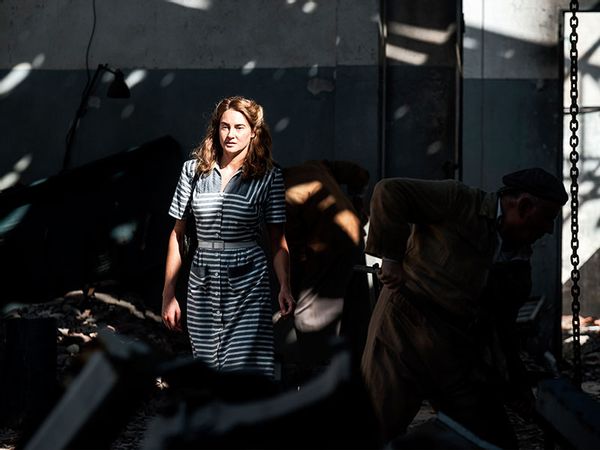 Shailene Woodley as Lina Lardi in “Ferrari” (Photo credit Lorenzo Sisti/Neon)
Shailene Woodley as Lina Lardi in “Ferrari” (Photo credit Lorenzo Sisti/Neon)
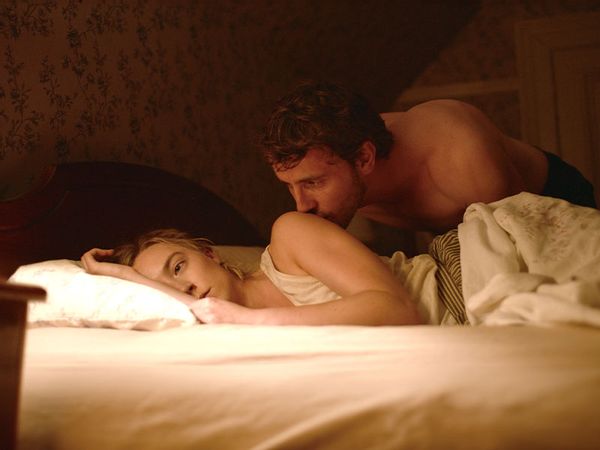 Paul Mescal and Saoirse Ronan in “FOE” (Courtesy of Amazon)
Paul Mescal and Saoirse Ronan in “FOE” (Courtesy of Amazon)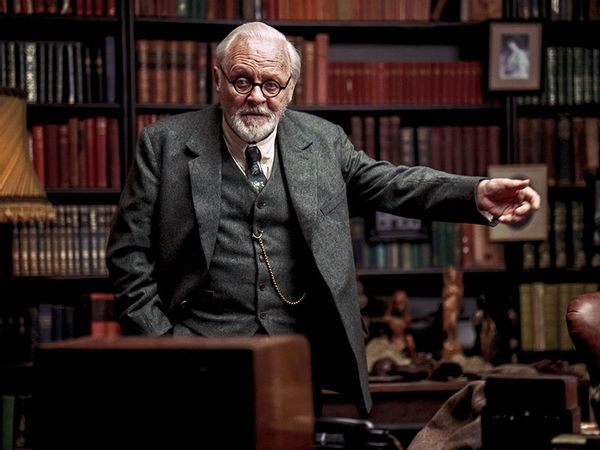 Anthony Hopkins in “Freud’s Last Session” (Courtesy of Sony Classics)
Anthony Hopkins in “Freud’s Last Session” (Courtesy of Sony Classics)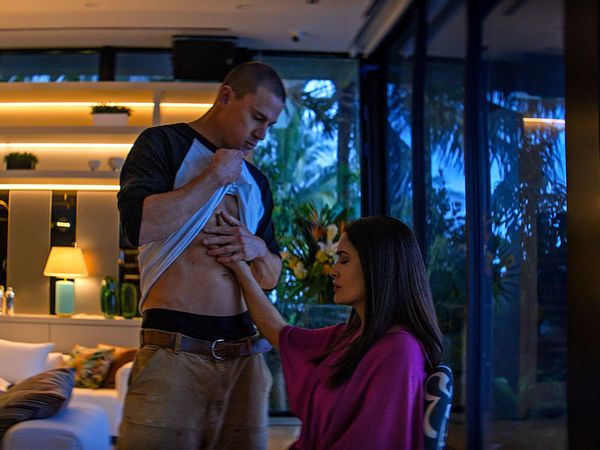 Channing Tatum in “Magic Mike’s Last Dance” (Warner Bros. Discovery)
Channing Tatum in “Magic Mike’s Last Dance” (Warner Bros. Discovery)
Tatum seems to be going through the motions in this entry, which is why “Magic Mike’s Last Dance” doesn’t excite. He can’t even generate a laugh out when he (jokingly) responds, “Who?” when asked if he knows Art Basel in Miami. Hired to put on a show at Maxandra’s London theater, Mike stages a climactic dance on stage in the rain. It’s emblematic of Tatum’s lackluster performance — all wet.
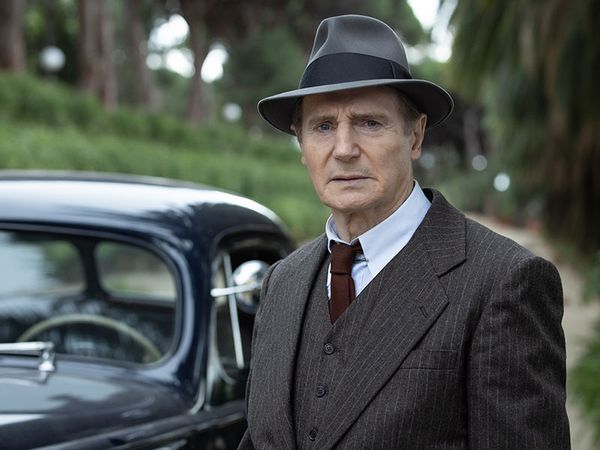 Liam Neeson in “Marlowe” (Open Road Films)
Liam Neeson in “Marlowe” (Open Road Films)
One issue is that the actor speaks his every line of dialogue — be it a flinty voiceover, a threat, or a wisecrack — in an emotionless monotone. Neeson may be suggesting Marlowe’s jaded cynicism, but it comes across as soft-boiled when it should be hard. His quizzical looks as he encounters a knotty mystery involving an heiress (Diane Kruger) are the same ones viewers may have on their own faces while watching Neeson sleepwalk through this head-scratching film. Marlowe is said to detect things, but Neeson can’t figure out how to play this role.
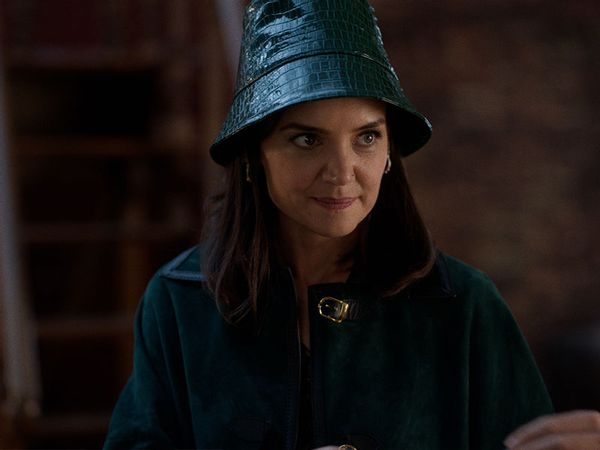 Katie Holmes in “Rare Objects” (IFC FILMS)
Katie Holmes in “Rare Objects” (IFC FILMS)Maybe it was because she was focused on directing this sentimental adaptation of Kathleen Tessaro’s novel that Holmes gives an inferior supporting performance as Diana, a wealthy young woman with mental health issues who befriends Benita (Julia Mayorga). Watching Diana trying to mask her pain with alcohol and drugs at lunch or a party is uncomfortable, not because of her issues, but because Holmes needlessly overacts. She tries too hard to project fun or despair as Diana and does neither convincingly. It becomes cringy to watch as she spirals downward. It also feels like Holmes is recycling the work she did in 2015’s “Touched by Fire,” where she played bipolar. Holmes gets a good performance out of newcomer Mayorga, but she should have cast someone else as Diana.
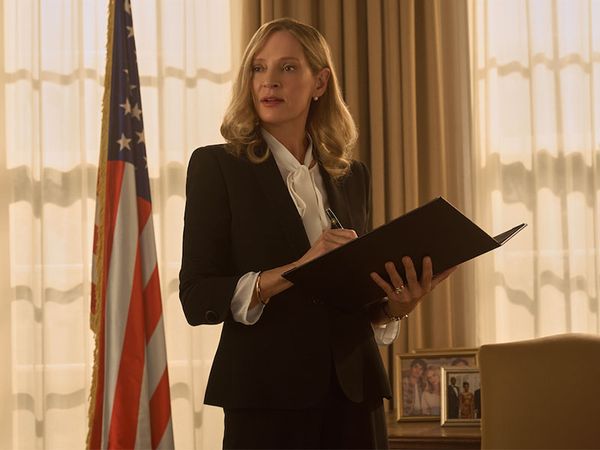 Uma Thurman in “Red, White & Royal Blue” (Courtesy of Amazon Prime)
Uma Thurman in “Red, White & Royal Blue” (Courtesy of Amazon Prime)
Want a daily wrap-up of all the news and commentary Salon has to offer? Subscribe to our morning newsletter, Crash Course.
 Jack Harlow and Sinqua Walls in “White Men Can’t Jump” (20th Century Studios)
Jack Harlow and Sinqua Walls in “White Men Can’t Jump” (20th Century Studios)In his film debut, an uneven remake of the 1992 classic sports comedy, rapper Jack Harlow does not bring his A game. Nor does he provide much amusement as Jeremy, a basketball hustler hoping to score. The miscast Harlow should be a charming goofball con artist who has some mystery about him — is he for real? Instead, he is out of his league, and just about as dumb as he pretends to be. Harlow’s lame performance — he can’t even trash-talk well — drags the film down. Moreover, he doesn’t have much chemistry with his genial costar, Sinqua Wells, who nobly suffers through Jeremy’s race-baiting remarks. Harlow, stick to your day job.
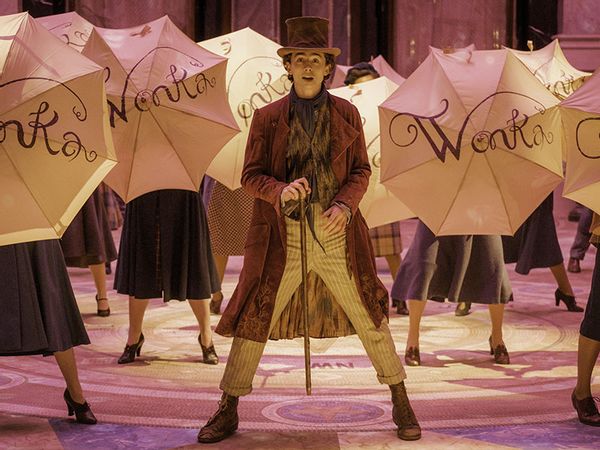 Timothée Chalamet in “Wonka” (Warner Bros. Entertainment)
Timothée Chalamet in “Wonka” (Warner Bros. Entertainment)Read more
end-of-year stories
[ad_2]